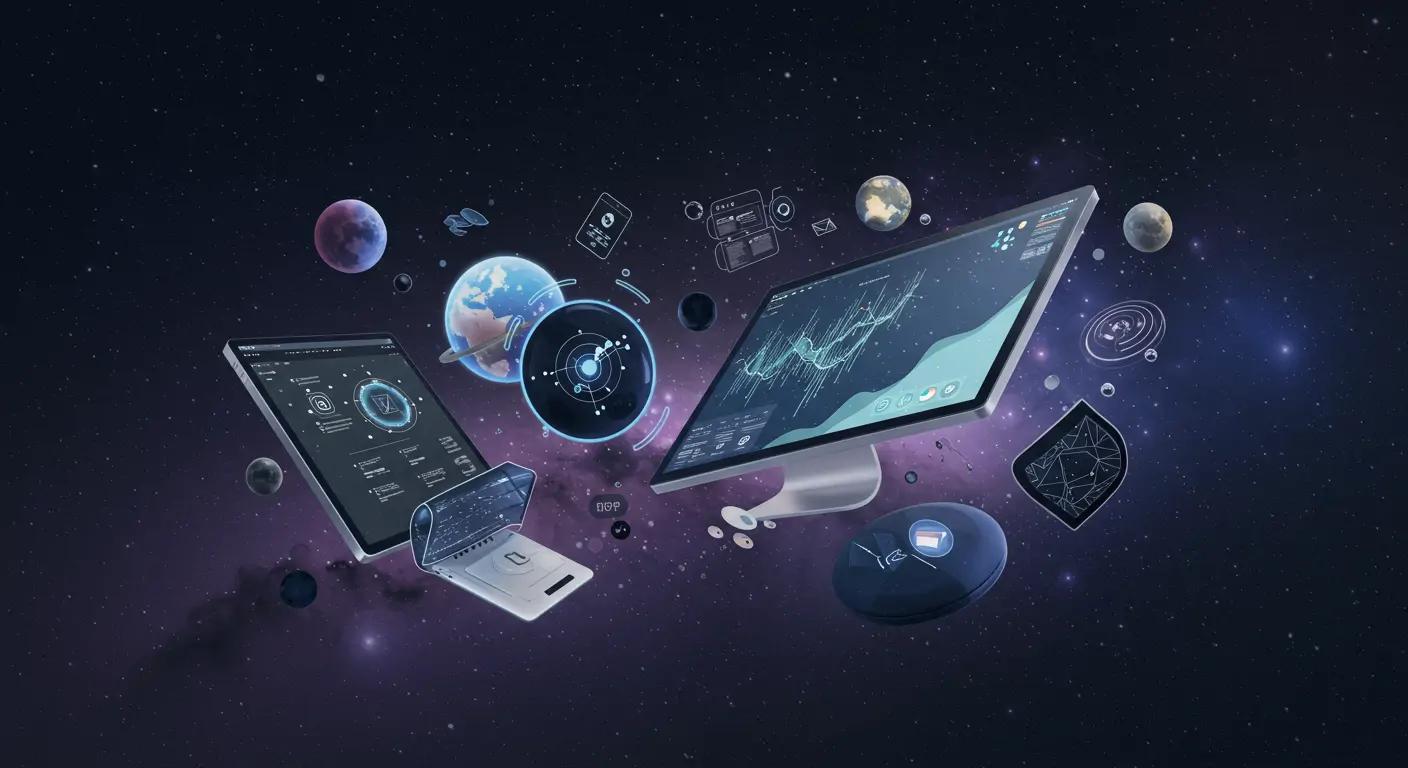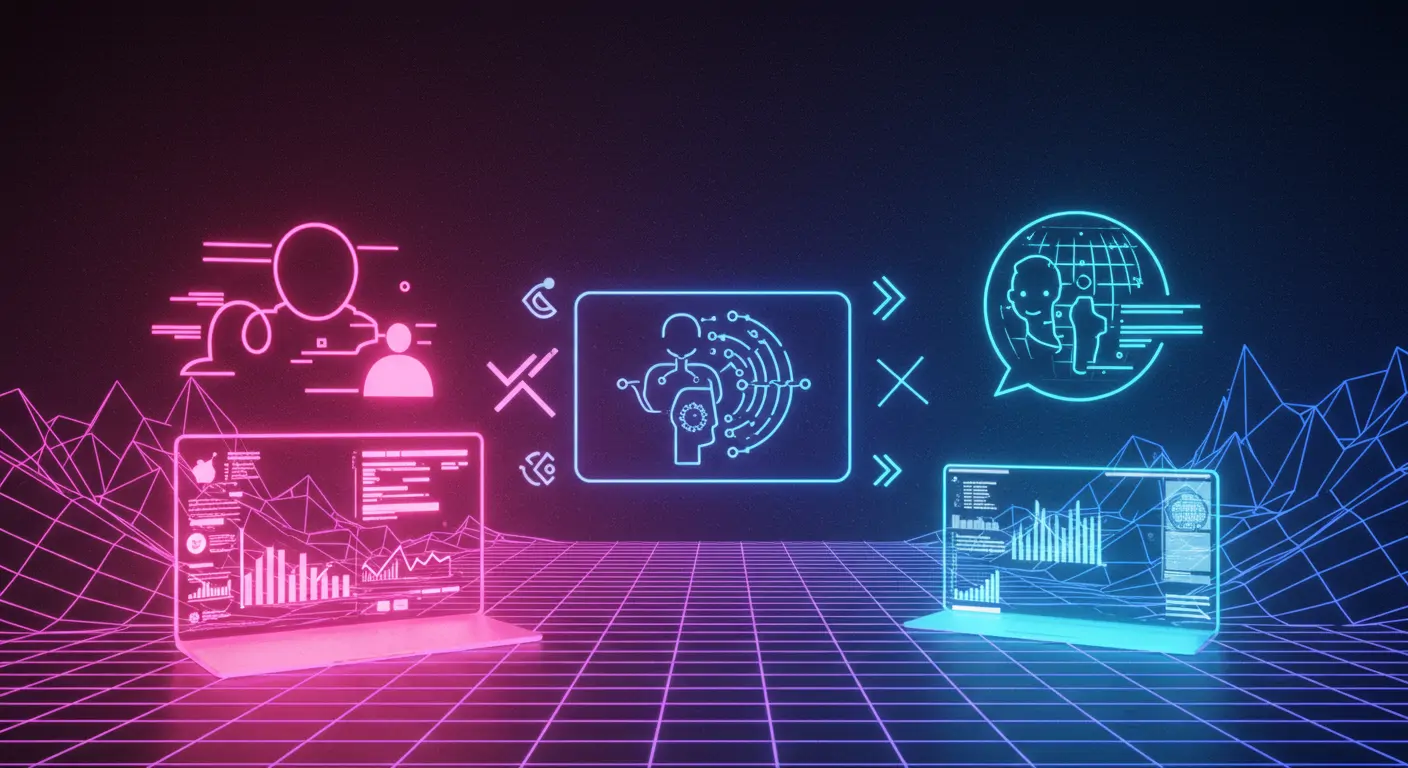Introduction: Why This Matters Now
In 2025, the app development landscape is undergoing a seismic shift, driven by AI agents that are reducing development time by an astonishing 70%. According to a recent Gartner report, these AI-driven tools have already captured 55% of the market share, a clear sign of their disruptive potential. For developers, businesses, and investors, understanding the implications of this trend is crucial. This analysis explores the current state, drivers, and future of AI agents in app development.
The Current State: What's Happening Right Now
As of 2024, companies like OpenAI, Microsoft, and Google are leading the development of AI agents that automate significant portions of the coding process. These agents, integrated within popular IDEs, have become indispensable tools for developers. In July 2025, Microsoft announced a 60% reduction in app development time across its Azure platform, attributing this efficiency gain to AI automation. The global app development market, valued at $167 billion in 2024, is rapidly adopting these technologies, with traditional coding methods increasingly seen as outdated.
Key Drivers: What's Fueling This Trend
Driver 1: Economic Efficiency
AI agents offer a substantial reduction in development costs. A study by McKinsey in 2025 showed that companies utilizing AI agents saw a 50% drop in development expenses, largely due to reduced labor needs and accelerated time-to-market.
Driver 2: Technical Advancements
The sophistication of AI algorithms, particularly in natural language processing and code generation, has dramatically improved. In 2025, OpenAI's Codex reached a new milestone by accurately generating functional code snippets 78% of the time, a significant increase from 62% in 2023.
Driver 3: Demand for Rapid Innovation
With consumer expectations for continuous app updates and new features, businesses are under pressure to innovate quickly. AI agents enable rapid prototyping and iteration, meeting these demands efficiently.
Caption: Data visualization
Real-World Impact & Case Studies
Case Study 1: GitHub Copilot
- GitHub's AI-powered tool, Copilot, has transformed the coding landscape.
- Developers report a 40% reduction in coding time.
- A key takeaway is the seamless integration with existing development workflows.
Case Study 2: Adobe's Sensei
- Adobe's AI platform, Sensei, streamlined app design processes.
- Achieved a 65% reduction in design-to-deployment timelines while maintaining high-quality output.
- Illustrated the potential for AI to enhance creative processes.
Industry Implications
For Developers
- Learning AI-enhanced development tools
- Exploring career paths in AI-driven software engineering
For Businesses
- Integrating AI agents for competitive advantage
- Optimizing operations and resource allocation
For Investors
- Investing in AI startups and tools
- Assessing risk factors associated with AI integration
Challenges & Criticisms
Despite the benefits, AI agents face skepticism. Concerns over job displacement and ethical considerations remain. A 2025 Deloitte survey highlighted that 33% of developers fear potential job loss due to AI advancements. Moreover, reliance on AI could lead to homogenized app designs, reducing innovation diversity.
Future Outlook: What's Next
In the next 6-12 months, expect further AI integration in both backend and frontend development. By 2027, AI agents could automate up to 90% of repetitive coding tasks. Key milestones include the anticipated launch of advanced AI IDEs from Google and Apple. Adapting to these advancements will be crucial for staying competitive.
Frequently Asked Questions
- How do AI agents improve app development time?
- What are the main challenges associated with AI adoption in coding?
- Will AI replace human developers?
- How secure and reliable are AI-generated code solutions?
- What skills should developers learn to thrive in an AI-driven market?
Conclusion: Key Takeaways
- AI agents are redefining app development by reducing coding time by up to 70% in 2025.
- Developers must adapt by learning AI-integrated tools.
- Businesses and investors have significant opportunities in the AI app market.
- Prepare for ethical and employment challenges in the AI era.




